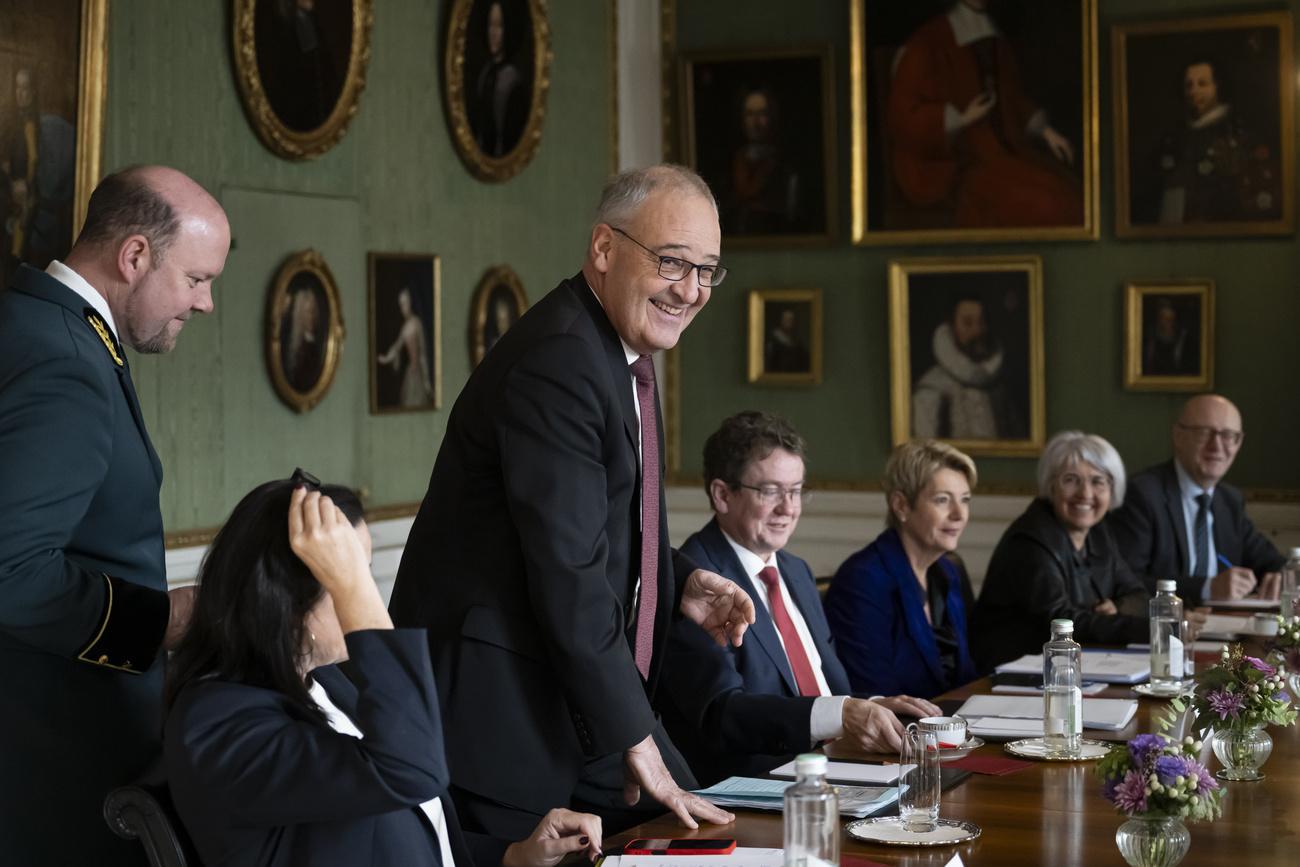
Lessons from the US-Swiss tariff dispute: when the ends justify the means

Tariff negotiations with the United States have been a steep learning curve for Switzerland and its trade diplomacy — and an unprecedented rollercoaster ride, concludes Matthias Pfander, a business correspondent for Swiss public TV, SRF.
First came the shock in April: Switzerland appeared high up on Donald Trump’s tariff list during the specially staged “Liberation Day” in the White House Rose Garden. Then came relief when the threatened 31% tariffs were temporarily suspended, opening a window for negotiations.
Soon, early successes trickled in: Swiss President Karin Keller-Sutter managed to hold initial top-level talks, and Switzerland seemed well-positioned for a deal. This led to near-euphoria and pride, with even Keller-Sutter’s excellent English skills being praised as a major asset.

More
Switzerland secures US tariff rate cut to 15%
More tactical ingenuity
But celebrations were premature: Switzerland was hit with 39% tariffs — as the only Western country with such a high rate — and felt Trump’s unpredictability in full force. Another shock, this time on Switzerland’s own National Day. Many found it disturbing that the “Sister Republic” of the United States became the victim of the erratic man in the White House.
Yet this second shock triggered more composure, discretion, and even tactical finesse. Switzerland tried to engage Trump on his own level as a dealmaker. FIFA President Gianni Infantino was suddenly cast as a beacon of hope. Rolex CEO Jean-Frédéric Dufour invited Trump to the VIP box at the US Open. A watch as a gift wasn’t handed over then — that came later.
Morally on the edge — or beyond
The motto seemed to be: leave no stone unturned. Acting independently but apparently in coordination with Bern, a group of prominent Swiss billionaire businessmen flew to the US and visited Trump in the Oval Office — including photographic evidence. They brought gold bars engraved with a message and a Rolex desk clock, but no cheese. Trump’s post about it on Truth Social glorified the action and its participants as saviors of the nation.
Finally, there was the nearly hour-long “constructive” conversation between Economics Minister Guy Parmelin and US Trade Representative Jamieson Greer. When Parmelin helped State Secretary Helene Budliger Artieda out of the limousine in Washington, she carried a Louis Vuitton bag — what was inside? Another gift for the negotiators?
Unusual times call for unusual measures — sometimes morally on the edge, or even beyond. According to Parmelin, “almost all points” were clarified in the latest talks. It’s quite possible that domestic squabbles will erupt once the agreement is on the table — over whether Swiss values were sold out, whether things went too far, or whether this was exactly what was needed.
One thing is clear: in the end, no one will be patting themselves on the back. But many will have learned a lot — for now, at least.

More
US tariff rate cut: Swiss press are upbeat but warn of high cost
More
Translated from German with support from AI / Veronica DeVore/sb

In compliance with the JTI standards
More: SWI swissinfo.ch certified by the Journalism Trust Initiative































You can find an overview of ongoing debates with our journalists here . Please join us!
If you want to start a conversation about a topic raised in this article or want to report factual errors, email us at english@swissinfo.ch.